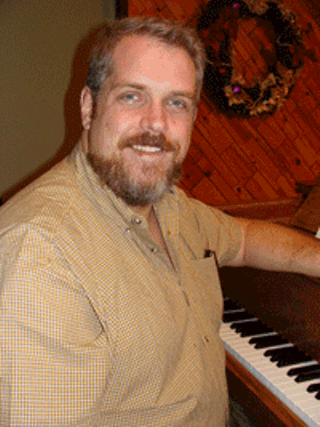How did Desert Voices begin?
The group is in its 19th season. It started as a way of fostering harmony between the gay and lesbian communities of Tucson. And more recently, we've been ... building bridges with as many communities as possible. It used to be in the beginning, there were just a couple of straight people. Everyone else was either gay male or lesbian. And now, we are just as mixed and diverse as you can possibly get. A little less than a third of our members are straight now. We have quite a few transgendered people involved in the chorus. We are just a wonderful mix.
How many people are in the chorus? Can anyone join?
We sang with 33 people in the last concert. We've been up to 60 in the past. Lately, we've been a little on the small side, but, eh, those things go in cycles. You don't have to be a professional singer or have a background in music. You just come to our meeting on Mondays (at Water of Life MCC, 3269 N. Mountain Ave., 7 p.m.); we have you sing and figure out where you are in the chorus. We always want more members.
Has the basic mission changed over the years?
The group went through reorganization seven years ago, and at that time, they refined their mission statement, but the basic idea of why the chorus exists in Tucson hasn't changed significantly. It's still fostering community, building bridges from community to community through the power of singing and through the power of music. Now, after almost 20 years, the communities have changed, and therefore, the shapes of the bridges have changed. But we're still basically doing our best to try to connect with as many people as we can.
You do that in your shows by allowing members to tell their stories before and during performances. How did that start?
That started with the reorganization. We've worked really, really hard to bring in more and more of our own personal stories when it's appropriate. I find that as an artistic director, it is easiest to make somebody think (by getting) them laughing first; get them enjoying the singing, and then you can hit them with the message. You know, they'll take to (the message) better. Our February show is a cabaret and our annual fundraiser, but the November show is about our work lives, and the April show is about our different faiths and beliefs. Those shows give us a chance to get personal.
What can your audience expect at the Feb. 9 show?
This one is just about what we do for fun. It's also an excuse for us to do music we never get a chance to do. A lot of us are huge Tom Lehrer fans. We're going to perform his "The Masochism Tango." You can't really do that with the chorus. It's also important to let people know that while in our other shows, we try to stay as family-friendly as possible, (in) this show, we're aiming for an R rating.
Do you see members go through a transformation while participating in Desert Voices?
We're part of a larger movement called GALA choruses, the Gay and Lesbian Association of Choruses, which is now celebrating its 25th year as an organization. There are continually stories of people who come to these choruses to find something special. Sometimes, their first tentative steps coming out are to join the gay men's chorus or join the women's chorus or join a mixed chorus. In many ways, we provide that kind of support that members of the gay community used to get from church or their families.
What's it like for you to be involved with Desert Voices?
I love this group of people. I am quite humbled by the people who come and give so freely of their time and talents to make it a success. For me, the essence of music is that music is made by people, for people. It's collaborative. That's the magic.





